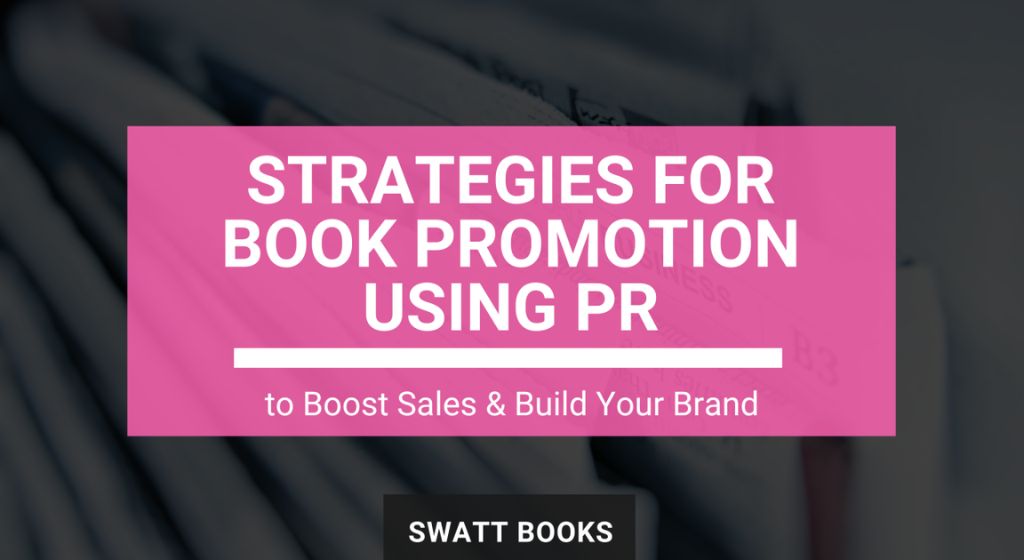Public relations (PR) isn’t just for big companies or celebrities—authors, whether self-published or traditionally published, can use PR to increase visibility, credibility, and ultimately, book sales.
In a saturated market where thousands of new titles are released every day, effective PR can help an author stand out, reach new audiences, and generate the kind of buzz that drives people to buy.
PR helps authors tell their story beyond the pages of their book. It’s about creating interest, securing media coverage, and building a public image that resonates with potential readers. Below is a comprehensive guide on how authors can use PR to boost sales.
Understand the Role of PR in Book Marketing
PR focuses on building awareness and trust through earned media—newspaper articles, TV interviews, podcasts, blog features, and word-of-mouth—not through paid advertisements. It positions you as an expert, a storyteller, or a cultural voice worth listening to.
For authors, the goal of PR is to:
-
Get media coverage about your book and personal story
-
Drive people to your website or online retailers
-
Grow your audience and email list
-
Position you as a thought leader or commentator in your genre or field
-
Create long-term visibility beyond the initial launch window
Unlike ads, PR creates lasting impressions and can generate multiple points of exposure that reinforce your brand and book.
Craft a Compelling Author Story
One of the most powerful tools in an author’s PR strategy is their own story. Readers and media alike are drawn to authors who have a unique background, an interesting path to publication, or a deeply personal connection to their book.
Ask yourself:
-
Why did you write this book?
-
What challenges did you face?
-
What message or theme is most important to you?
-
How does your background relate to the story or subject matter?
The more compelling and relatable your personal story is, the more likely journalists, bloggers, and podcast hosts are to feature you. Your story doesn’t have to be dramatic—it just needs to be genuine and tied to your book’s message.
Build a Strong Press Kit
Before pitching to media, authors should create a digital press kit that includes all the essentials journalists or influencers might need. A well-prepared press kit saves time and increases your chances of coverage.
Your press kit should include:
-
A professional author bio (short and long versions)
-
A high-resolution author photo
-
A short synopsis of your book
-
High-resolution book cover image
-
Key talking points or interview topics
-
Links to reviews, website, and social media
-
Contact information for media inquiries
Make sure it’s easily downloadable from your website. You can create a dedicated “Media” or “Press” page to house this information.
Leverage Book Reviews and Endorsements
Reviews can build credibility and drive more sales. Encourage early readers, bloggers, and influencers to post reviews on Amazon, Goodreads, and social media. Reach out to book bloggers and online magazines that cover your genre.
Also, try to secure endorsements or blurbs from other authors, experts, or public figures in your field. A well-placed quote from a recognizable name on your book cover or website can make a major difference in how the public perceives your work.
Don’t be afraid to ask—many people are happy to support fellow creatives, especially if they connect with your message.

Pitch to Relevant Media Outlets
Craft customized pitches to different types of media depending on your audience and genre. If you’ve written a novel, target book clubs, literary blogs, and culture podcasts. If your book is nonfiction, look for media outlets that cover your subject matter—whether it’s health, business, parenting, or self-help.
Your pitch should include:
-
A compelling subject line
-
A short summary of your book and why it’s relevant now
-
Why you’re a great person to feature or interview
-
A link to your press kit and contact info
Start with smaller, niche outlets—they’re more likely to respond and may lead to bigger opportunities later. Always follow up politely if you don’t hear back.
Use Podcast Interviews to Your Advantage
Podcasts are a goldmine for authors. They’re usually more in-depth than traditional media, and they allow you to connect with a niche audience that’s already engaged and loyal. Plus, they live online indefinitely and can continue to generate interest over time.
Research podcasts that align with your topic or audience and pitch yourself as a guest. Prepare talking points in advance and try to reference your book naturally during the conversation. After the episode airs, share it widely on your social media and website.
The more interviews you do, the more comfortable and polished you’ll become.
Host Virtual Book Events and Launches
If you’re unable to host in-person book signings or readings, use virtual events to create buzz and media attention. A virtual launch event can include a live reading, a Q&A session, or a conversation with another author.
Promote your event on social media, through email, and in community forums. Partner with local libraries, bookstores, or reading groups to co-host and expand your reach.
Recording the event and uploading it to YouTube or your website ensures it continues working for you long after the live session ends.
Write Guest Articles or Op-Eds
Authors can further boost PR by writing articles or opinion pieces for online publications, newspapers, or magazines. These pieces should tie into your book’s themes but offer stand-alone value to the reader.
For example:
-
A self-help author might write “5 Ways to Build Confidence During a Career Change.”
-
A fiction writer might write about “The Importance of Diverse Representation in Fantasy Novels.”
-
A memoirist might pen “What Writing About My Trauma Taught Me About Healing.”
These articles can include a short bio and link to your book, helping you reach new audiences while establishing your expertise.
Maximize Your Online Presence
Your website should act as a central hub for all your PR efforts. It should be professional, easy to navigate, and include:
-
A homepage with your book featured prominently
-
A media page with your press kit and media coverage
-
A blog or news section for updates
-
Email signup form to build your list
-
Social media links
Also, keep your social media active. Share behind-the-scenes moments, updates, media appearances, and personal reflections. The more engaged you are online, the more likely people are to discover and share your work.

